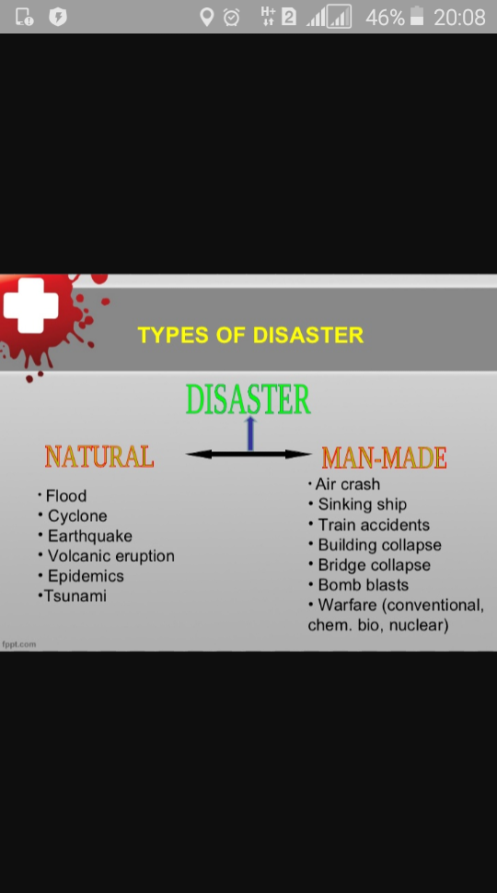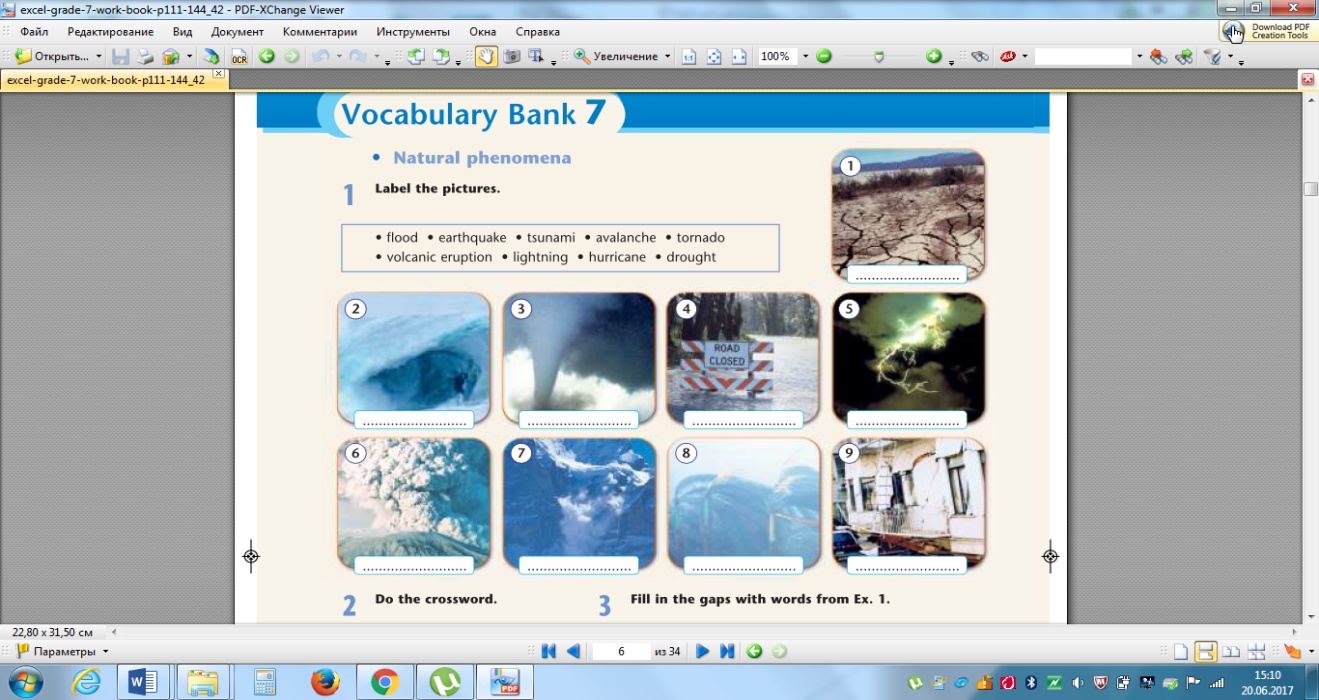
Искакова З.К, ағылшын тілі пәнінің мұғалімі
БҚО, Теректі ауданы, Ақжайық ауылы.
Ақжайық жалпы орта білім беретін мектебі
Lesson plan
|
Unit of a long time: Unit 7: Natural Disasters /Excel, 7/ |
School: Akzhaik secondary school |
||||||||||||||||||||||||||||||||||||||||||||||||||||||||||||||||||||||||||||||||
|
Date: |
Teacher name: Iskakova Z.K |
||||||||||||||||||||||||||||||||||||||||||||||||||||||||||||||||||||||||||||||||
|
Class: 7 |
Number present: |
absent: |
|||||||||||||||||||||||||||||||||||||||||||||||||||||||||||||||||||||||||||||||
|
Lesson title: Looking at natural disasters in Kazakhstan and around the world |
|||||||||||||||||||||||||||||||||||||||||||||||||||||||||||||||||||||||||||||||||
|
Learning objectives (s) that this lesson is contributing to (link to the Subject programme) |
7.C9 use imagination to express thoughts, ideas, experiences and feelings 7.L4 understand with little support some of the implied meaning in extended talk on a limited range of general and curricular topics 7.S7 use appropriate subject-specific vocabulary and syntax to talk about a range of general topics, and some curricular topics 7.S8 recount some extended stories and events on a growing range of general and curricular topics |
||||||||||||||||||||||||||||||||||||||||||||||||||||||||||||||||||||||||||||||||
|
Lesson objectives |
All learners will be able to:
Most learners will be able to:
Some learners will be able to:
|
||||||||||||||||||||||||||||||||||||||||||||||||||||||||||||||||||||||||||||||||
|
Assessment criteria |
Read and answer the questions Share their own ideas and discuss Interview each other and get more information on the topic |
||||||||||||||||||||||||||||||||||||||||||||||||||||||||||||||||||||||||||||||||
|
Values links |
To respect each other and yourself, respect other opinion, careful attitude to the environment (Values of mankind) |
||||||||||||||||||||||||||||||||||||||||||||||||||||||||||||||||||||||||||||||||
|
Cross-curricular links |
Geography, science |
||||||||||||||||||||||||||||||||||||||||||||||||||||||||||||||||||||||||||||||||
|
ICT skills |
Projector for presenting PPT and video image of this story |
||||||||||||||||||||||||||||||||||||||||||||||||||||||||||||||||||||||||||||||||
|
Previous learning |
Basic knowledge about natural disasters |
||||||||||||||||||||||||||||||||||||||||||||||||||||||||||||||||||||||||||||||||
|
|
Plan |
||||||||||||||||||||||||||||||||||||||||||||||||||||||||||||||||||||||||||||||||
|
Planned timings |
Planned activities (replace the notes below with your planned activities) |
Resources |
|||||||||||||||||||||||||||||||||||||||||||||||||||||||||||||||||||||||||||||||
|
Start 2 min 5 min |
Greetings: ask students to make a circle and say wishes each other to create a friendly atmosphere in class. T: divides class into three groups. Leed-in (W) Speaking activity: Prediction. (Watching the video) How do you think what this video is about? What are we going to talk about today? (Today we shall speak about natural disasters) Association. When you hear the word disaster what thoughts come to your mind? a
disaster
death damage |
https://youtu.be/zQYe3ngG6qs Video (10 deadly natural disasters) |
|||||||||||||||||||||||||||||||||||||||||||||||||||||||||||||||||||||||||||||||
|
Middle 5 min 3 min 3 min 3 min 5 min 5 min 10 min 7 min
|
T: There are two types of disaster: natural and man-made (technological in nature). Today we shall speak about natural disaster. V New words: flood, earthquake, tsunami, avalanche, tornado, volcanic eruption, lightening, hurricane, drought
Task 1: (P) Match the natural phenomena (1-9) to the pictures (A-I) Look at the pictures and say which of these phenomena are/are not common in your country. Example: Floods are common in my country. Tornadoes are not common in my country. Pre-listening (I) Text: True stories Students predict what the text is about by pictures and key words /warm breeze, crystal water, loud roar, huge wave swallowed me, hand grabbed me, palm tree, in panic, lonely and lost, lucky to be /. (Elicit what they show: a tropical beach, a huge wave, a flooded village. Elicit Ss’ guesses as to what the text is about) Gist-questions. (W)
While-listening (I) Play the recording. Ss listen and follow the text in their books and check if their guesses were correct. Post-listening (I) Read the text again and complete the sentences. Use two to four words Differentiation by task (G)
(suggested answer: “Lucky to be alive”, “A narrow escape”)
С. Imagine you are Mark. How did you feel during the tsunami? Say and\ or write a few sentences.
Questions by Bloom’s taxonomy
Formative assessment (P) a) Talk with your partner about your funniest, saddest or scariest experience on holiday. 1 where/you go? A: Where did you go? B: I went to ... .
< Бұл материал сайт қолданушысы жариялаған. Материалдың ішінде жазылған барлық ақпаратқа жауапкершілікті жариялаған қолданушы жауап береді. Ұстаз тілегі тек ақпаратты таратуға қолдау көрсетеді. Егер материал сіздің авторлық құқығыңызды бұзған болса немесе басқа да себептермен сайттан өшіру керек деп ойласаңыз осында жазыңыз Искакова З.К, ағылшын тілі
пәнінің мұғалімі БҚО, Теректі ауданы,
Ақжайық ауылы. Ақжайық жалпы орта білім
беретін мектебі
Lesson
plan Unit of a long
time: Unit 7: Natural
Disasters /Excel,
7/ School: Akzhaik secondary
school Date: Teacher
name: Iskakova
Z.K Class: 7 Number
present: absent: Lesson
title: Looking at natural disasters
in Kazakhstan and around the
world Learning
objectives (s) that this lesson is
contributing to (link to the Subject
programme)
7.C9 use imagination
to express thoughts, ideas, experiences and
feelings
7.L4 understand with
little support some of the implied meaning in extended talk on a
limited range of general and curricular
topics
7.S7 use appropriate
subject-specific vocabulary and syntax to talk about a range of
general topics, and some curricular
topics
7.S8 recount some
extended stories and events on a growing range of general and
curricular topics Lesson
objectives All learners will be able
to: identify the main
idea name various types of natural
disasters retell the story with
support Most learners will be able
to: identify some
details make the statements using key
words retell the story without
support Some learners will be able
to: give at least one key fact for
each type of natural
disaster explain whether natural
disasters are weather-related or
geology-related. express their own opinion to
the events make up their own
story Assessment
criteria Read and answer the
questions Share their own ideas and
discuss Interview each other and get
more information on the
topic Values
links To respect each other and
yourself, respect other opinion, careful attitude to the
environment (Values of
mankind) Cross-curricular
links Geography,
science ICT
skills Projector for presenting PPT
and video image of this
story Previous
learning Basic knowledge about natural
disasters
Plan Planned
timings Planned activities (replace
the notes below with your planned
activities) Resources Start 2
min 5
min Greetings: ask students to make a circle
and say wishes each other to create a friendly atmosphere in
class. T:
divides class into
three
groups. Leed-in (W) Speaking
activity: Prediction. (Watching the
video) How do you
think what
this
video is
about? What are we going to talk
about today? (Today we shall speak about
natural disasters) Association. When you hear the word
disaster what thoughts come to your
mind? a
disaster death
damage https://youtu.be/zQYe3ngG6qs Video (10 deadly natural
disasters) Middle 5
min 3
min 3
min 3
min 5
min 5
min 10
min 7
min
T:
There are two types of
disaster: natural and man-made (technological in nature). Today we
shall speak about natural
disaster. V New
words: flood, earthquake, tsunami,
avalanche, tornado, volcanic eruption, lightening, hurricane,
drought Task
1: (P) Match the natural phenomena
(1-9) to the pictures (A-I) Look at the pictures and say
which of these phenomena are/are not common in your
country. Example: Floods are common
in my
country. Tornadoes are not common in my
country. Pre-listening
(I) Text: True
stories Students predict what the text
is about by pictures and key words /warm breeze, crystal
water, loud roar, huge wave swallowed me, hand grabbed me, palm
tree, in panic, lonely and lost, lucky to be
/. (Elicit what they show: a
tropical beach, a huge wave, a flooded village. Elicit Ss’ guesses
as to what the text is
about) Gist-questions.
(W) Have you ever seen a natural
disaster? Have you ever wondered what
caused them? Have you noticed that certain
natural disasters cause or trigger other natural
disasters?
While-listening
(I) Play the recording. Ss listen
and follow the text in their books and check if their guesses were
correct. Post-listening
(I) Read the text again and
complete the sentences. Use two to four
words Differentiation by task
(G) Give the story another
title
(suggested answer:
“Lucky to be alive”, “A narrow
escape”)
Match the adjectives to their
synonyms. Then explain the words in
bold.
1
welcome
2
3
shocked
4
safe
5
lonely
6
relieved
a
huge
b
horrified
c
pleasant
d
abandoned
e
calm
f
unharmed
С. Imagine you are Mark. How did
you feel during the tsunami? Say and\ or write a few
sentences.
Questions by Bloom’s
taxonomy
How does disaster
influence to a human?
What types of
natural disasters are common in our area?
Why?
What can we do to
prepare for natural
disasters?
Can natural
disasters ever be prevented? Give
examples
How does government
of our country prevent natural
disaster?
Formative
assessment (P)
a) Talk with your
partner about your funniest, saddest or scariest experience on
holiday.
1 where/you
go?
A: Where did you
go?
B: I went to ...
.
< | ||||||||||||||||||||||||||||||||||||||||||||||||||||||||||||||||||||||||||||||||


 ocabulary
(Drilling)
ocabulary
(Drilling)














